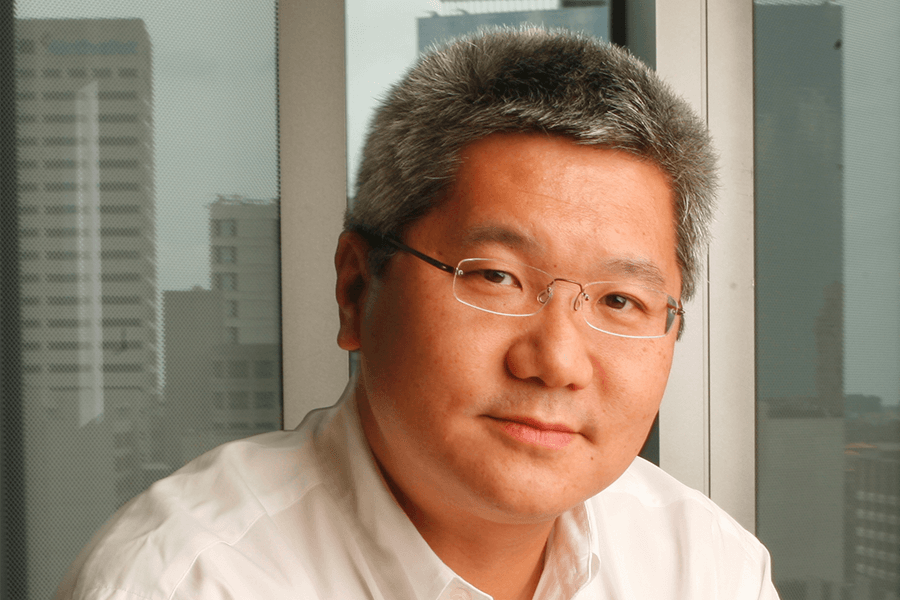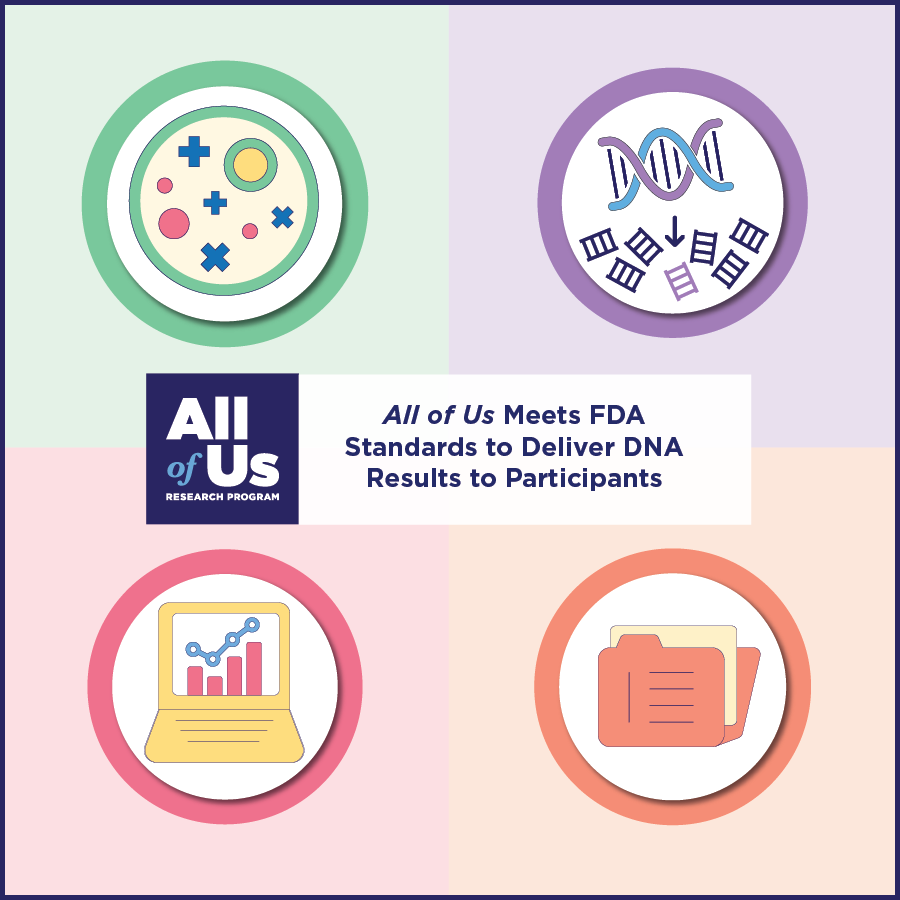
“If we live in this ivory tower of genomic medicine, what good is it?”
Dr. Brendan Lee is known by patients and colleagues as the Great Explainer, translating the ABCs of DNA. As a practicing pediatrician and geneticist for more than 30 years, Dr. Lee has contributed to groundbreaking discoveries, funded in part by the National Institutes of Health. A primary focus is making sure science is understood.
Key Facts:
- As a medical geneticist, Dr. Lee helps patients understand their genetic information.
- Dr. Lee believes genetic information is important in making health decisions.
- Dr. Lee has played a role in multiple medical discoveries on genetics.
When greeting a new patient for the first time, Dr. Lee is ready with a simple metaphor he has shared for 30 years. Comparing DNA to an encyclopedia, he describes his role as a medical geneticist, reading the 20,000 chapters of the patient’s genetic almanac.
Although every person has the same number of chapters in their DNA encyclopedia, he explains, there will be some variations in each book—subtle changes in the wording of the chapters—or the patterns of genes that can offer clues to possible illness or disease risk. By speaking simply, Dr. Lee has helped patients—as well as the general public—understand and appreciate the power and promise of genomic medicine.
Sandesh C.S. Nagamani, M.B.B.S., M.D., a co-investigator with Dr. Lee at Baylor College of Medicine (BCM) in Houston for several rare disease studies, has seen him translate complex genetic concepts while speaking to advocacy groups about research and talking to patients in the clinic.
“He has an extraordinary art of communicating and inspiring people,” Dr. Nagamani said. “He talks about DNA with an uncanny ability to relate research on rare diseases that can drive discoveries for more common disorders.”
Information is Power
As a champion of communicating research to the public, Dr. Lee is passionate about the All of Us Research Program’s return of health-related genetic results to participants. In December 2022, All of Us began providing thousands of participants with detailed personalized reports on whether they had an increased risk for specific health conditions and how their body might process certain medications. This was the first phase of offering actionable, accessible health-related DNA results to participants who had contributed a blood sample and consented to receive their genetic information.
“This knowledge is power,” Dr. Lee said. “Perhaps providing this information will begin to change how we think about our health to incorporate genetics.”
Participants can use the information to make decisions about their health, diet, and well-being, he said.
“This is the very beginning of returning valuable information,” Dr. Lee said. “No one has provided genetic information at this scale before. We just didn’t have the technology.”
Dr. Lee intends to promote the importance of learning your own genetic blueprint through his leadership as the 2023 president of the American Society of Human Genetics (ASHG), the world’s largest organization of professional geneticists, with more than 8,000 members. ASHG will mark its 75th anniversary this year with the motto “One Humanity, Many Genomes.”
“We are more similar than we are different,” Dr. Lee said. “It is important to keep that in mind. In understanding our health, our genetic differences impact disease risk and are greatly influenced by our environment.”
Collecting data on various social and environmental factors is an integral part of the program. In 2021, All of Us rolled out a new survey asking participants to provide more of this data for research. Questions included factors affecting their daily lives, such as neighborhood safety; living environments, food and housing security, experiences with discrimination and stress, and health care access and interactions. The responses from more than 57,600 participants are available to registered researchers in the All of Us Researcher Workbench alongside genomic data, information from electronic health records, activity monitors, and other surveys, to help scientists understand how different factors affect health.
Path to Science and Medicine: “Delusions of Grandeur”
Dr. Lee’s path to translating the ABCs of DNA began as a child, learning the ABCs in a new language. While he describes his childhood as a “typical immigrant experience,” it was a challenging time for him. He was 5 years old and spoke only Chinese when he came to New York City from Hong Kong with his parents. He learned English in kindergarten and skipped ahead in elementary school. He attended Stuyvesant High School, a public college-preparatory school in New York that specializes in math, science, and technology.
“I was a nerdy kid and loved to read,” he said. As a young teen, he read The Double Helix, scientist James Watson’s personal account of the discovery of the structure of DNA. “That was the first time I had heard of DNA,” Dr. Lee said. He was hooked.
Stuyvesant cultivated Dr. Lee’s interest in math and science. He was the first member of his family to pursue higher education and won a scholarship to The City University of New York’s Brooklyn College, where he majored in chemistry. While there, he joined other students volunteering at Beth Israel Deaconess Medical Center and was drawn to the medical setting. Throughout his graduate training, he dreamed of becoming both a research scientist and a medical practitioner. In the late 1980s, being a physician-scientist was fairly uncommon.
“I called it having delusions of grandeur,” Dr. Lee quipped. “I wanted to help improve patients’ lives directly, but also combine research and medicine to advance medical discoveries.”
His persistence and passion transformed what he considered a pipe dream into reality. In 1991, as a postdoctoral fellow at the Mount Sinai School of Medicine in New York, he was introduced to the field of genetic disorders. “It was so exciting. I could see this was the future.”
Dr. Lee completed his medical residency and clinical fellowship at BCM. “This is where I became truly immersed in the value of genetics and genomics,” he said.
Dr. Lee and BCM colleagues now lead the All of Us Evenings with Genetics Research Program, a series of seminars and collaborative projects with universities across the country to promote the field of genetics. Baylor encourages researchers, student scholars, faculty, and trainees from underrepresented communities to use the All of Us Researcher Workbench. The seminars, funded in 2021 through an All of Us community engagement partner award, are modeled after Baylor’s Evenings with Genetics seminar series, now in its second decade, and are aimed at sharing research discoveries with the public.
Research Advances
Throughout his 30-year career, Dr. Lee has used his expertise in translating the study of structural birth defects and inborn errors of metabolism to advance basic understanding of human development, disease, and therapeutic approaches. During his career, he was part of the team that identified the gene causing recessive forms of osteogenesis imperfecta, commonly known as brittle bone disease.
As Dr. Lee began his career, he was also the lead on a novel discovery linking the gene that causes Marfan syndrome to related disorders . Marfan syndrome, a deadly and inherited disorder, became well known when physicians suggested that President Abraham Lincoln might have had the condition. The disease changes how the body’s proteins build connective tissue, leading to problems with bone growth, muscle development, and other body functions.
“My training was really an amazing period of gene discoveries,” Dr. Lee said. “It was like landing on the moon in terms of genetics and genomics.”
The Future
In the future, Dr. Lee sees genomics extending well beyond the lab to advance discoveries—and the public having increasing awareness about the role of precision medicine in their own lives.
“How do you take all this information, whether it’s diagnostic, therapeutic, or scientific, and help patients?” he asks. “Well, that’s what All of Us is doing: bringing genomic medicine and personalized health to everyone.”
Share your story with All of Us
If you would like to recommend someone to be featured, please submit a suggestion to All of Us.
Are you Interested in the All of Us Research Program?
- Learn about participation in the program.
- Learn about opportunities for researchers.


